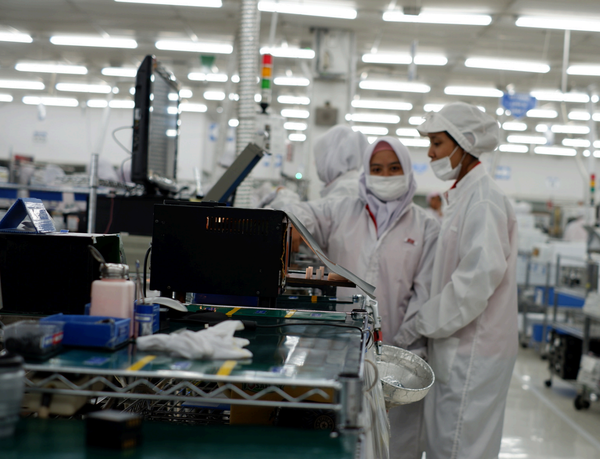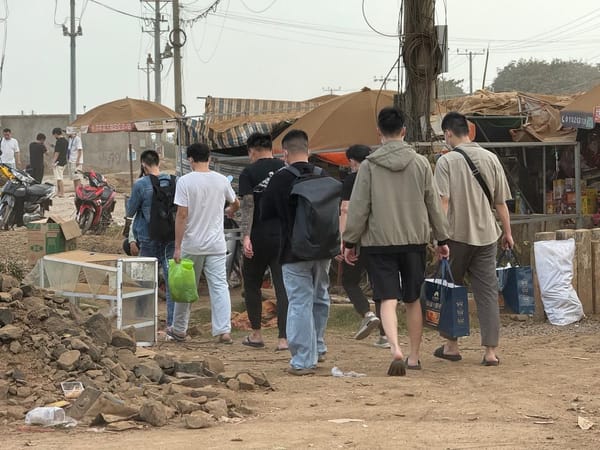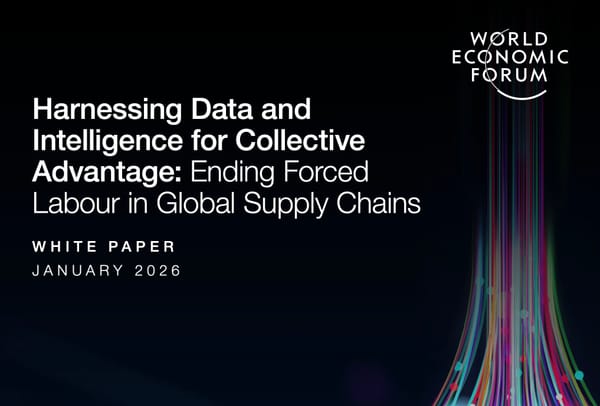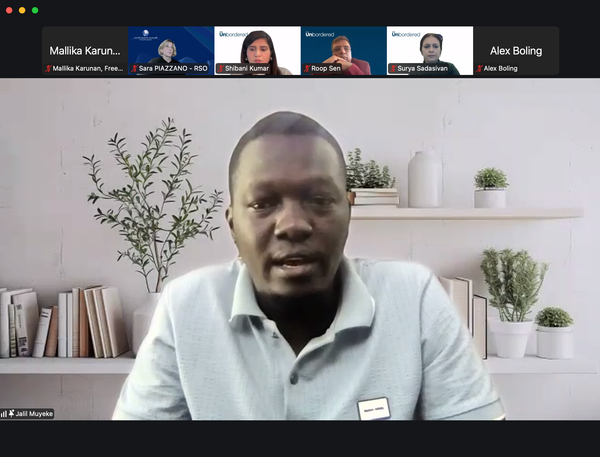Systemic changes are needed to allow more anti-trafficking funding to reach victims
Survivor-centered and unrestricted funding approaches would increase the impact of grassroots groups, an investigation into Indian cotton farms shows forced labour and child labour, and a Shein lawyer evades UK lawmakers’ questions on Chinese cotton.

Funding for anti-trafficking work still too often benefits large corporations and organizations while failing to reach victims or the grassroots organizations that support them, according to speakers at a recent webinar organized by the Global Alliance Against Traffic in Women (GAATW) and Freedom Collaborative, with reference to research published in the latest issue of Anti-Trafficking Review.
The discussion highlighted both the longstanding systemic barriers and bureaucratic inefficiencies – such as the privatization of victim services and the overlap between immigration, law enforcement, and service provision systems – that prevent government-funded support from reaching survivors, and the administrative and organizational barriers that so often exclude smaller NGOs and grassroots organizations from accessing donor funding, including the complexities of the grant process, a lack of flexible, community-driven approaches among funders, and funding policies that fail to prioritize survivor needs and input.
Accessing large grants presents significant challenges for smaller NGOs – many grants require substantial administrative and organizational capacity, which smaller organizations often lack, while the intricate application processes and stringent reporting requirements can be overwhelming. Government grants exacerbate the situation by imposing restrictions on how funds are used and demanding meticulous tracking and reporting of expenditures, diverting resources away from direct service delivery. And funding is often tied to official frameworks and systems which prioritize survivors who meet specific legal definitions of trafficking, while excluding individuals who fall outside these criteria but are nonetheless in need of assistance.
A further issue lies in the lack of grassroots engagement in funding design – funders frequently determine priorities without consulting local organizations, resulting in programs that fail to address the realities and needs of the communities they aim to serve. Furthermore, operational sustainability remains a persistent challenge for NGOs – restricted government grants seldom cover essential operational costs, forcing organizations to rely heavily on unrestricted private donations to remain functional. This dynamic compels NGOs to navigate a delicate balance between meeting donor-imposed requirements and addressing the actual needs of their communities.
At the policy level, the UK’s National Referral Mechanism (NRM), for example, operates as part of the immigration system rather than as a protective measure, thereby worsening the situation for victims who are kept in prolonged destitution due to delays and bureaucratic inefficiencies. Moreover, the privatization of victim services means that government funding often benefits private security corporations or well known charities, but fails to directly support victims.
In Alaska, federal funding creates incentives for exclusive eligibility requirements and prioritizes cooperation with law enforcement over direct victim care. Despite anti-trafficking services receiving US$10 million in federal funds since 2019, Alaska has minimal victim identification and victims, especially those criminalized due to their association with traffickers, face barriers to accessing services. Meanwhile, grassroots organizations are often overshadowed by large, well-funded non-profits with minimal accountability.
To address these longstanding issues with government systems, the following recommendations were made: introduce greater scrutiny of funding recipients and their allocation of resources; collapse harmful bureaucracies that perpetuate inefficiencies; engage directly with affected communities and grassroots organizations to understand real needs; decouple service provision from law enforcement; simplify eligibility criteria to ensure broader inclusivity in victim services; and replace law enforcement-focused task forces with multidisciplinary teams led by survivors and grassroots organizations.
Meanwhile, it was reiterated that donors and funders should focus on flexible, survivor-centered approaches that empower grassroots organizations to meet the real and immediate needs of their communities. In particular, they should: make funding accessible to smaller organizations by reducing the administrative burdens associated with applications and reporting; consult with local NGOs in the early stages of program design to identify urgent needs and avoid misaligned priorities; provide flexible and unrestricted funding that allows NGOs to allocate resources based on evolving needs; ensure grants include provisions for operational costs; and encourage joint initiatives and partnerships while addressing the logistical challenges of shared contracting and administration.
Here’s a round-up of other noteworthy news and initiatives:
A new report from Transparentem on its years-long investigation into conditions on Indian cotton farms details alarming indicators of forced labour and child labour, with some children exposed to hazardous pesticides or handling these toxic substances. While it acknowledges the inherent challenges in addressing complex and systemic issues, Transparentem urges suppliers and buyers to move towards implementing remediation plans to prevent and respond to all identified risks.
The Civil Society Network for Victim Assistance in Human Trafficking has reported that more than 6,000 people from 21 countries are being held captive in Myanmar, and are reportedly subjected to severe physical and psychological abuse. Many victims were lured to Thailand by false promises of well-paying jobs and subsequently trafficked to Myanmar, with Mae Sot identified as a key transit hub, the report states. On Friday, the group submitted an open letter to Thailand’s National Human Rights Commission (NHRC), asking for urgent intervention to rescue the victims.
This recently published fact sheet, written by a coalition of UK-based civil society and research groups, addresses the dangers of “conflating trafficking, modern slavery and sexual exploitation with all prostitution or sex work”. It also explores the harm caused to both victims and sex workers by further criminalization.
A lawyer for Shein summoned to a British parliamentary hearing evaded questions last week on whether it sells products containing cotton from China, angering lawmakers seeking answers on the retailer’s labour practices and allegations of forced labour in its supply chains. Executives from Shein and its rival Temu were grilled on their labour rights compliance and how they source their products amid reports that Shein, which was founded in China but is now based in Singapore, is preparing for a £50 billion (US$62 billion) listing on the London Stock Exchange.
An estimated 21,000 migrant workers, mostly from Nepal, India, and Bangladesh, have died since construction began on Neom, Saudi Arabia’s flagship megacity, according to the ITV documentary Kingdom Uncovered: Inside Saudi Arabia. The figures highlighted by the film demonstrate the grave risks faced by migrant workers in the country, says Walk Free – in addition to fatalities, migrants face bad working conditions, wage theft, and grueling hours that exceed international labour standards. Human rights organizations and labour advocates continue to urge FIFA to reconsider its decision to award the 2034 FIFA World Cup to Saudi Arabia, highlighting the structural and endemic nature of labour abuses in the country.
Cambridge University’s Institute of Criminology will host a public seminar on 20 February, 17:00-19:00 GMT, on “Supply chain justice: the logistics of British border control”, in which Professor Mary Bosworth will introduce her new book exploring immigration detention and deportation in the UK. Sign up here to attend in person, or here to attend online.
A webinar on “Understanding the new European Union regulation on prohibiting products made with forced labour on the Union market: Implications and guidance for businesses” will be held by The ILO Global Business Network of Forced Labour on 21 January 14:00-15:30 CET, with the aim of providing comprehensive information about the recently adopted EU regulation prohibiting products made with forced labour on the Union market, its implications for business, and the subsequent steps for implementation.




